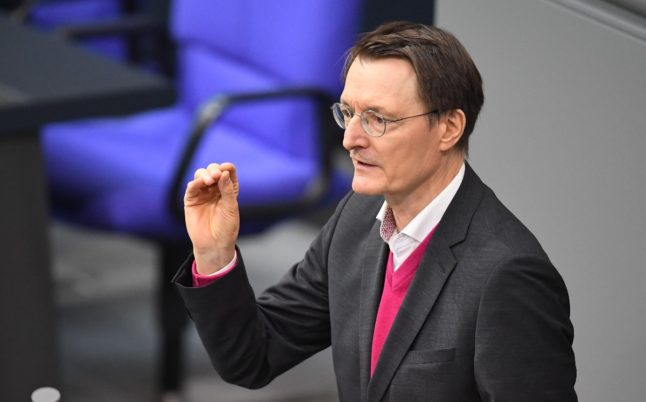In the Bundestag on Friday, a majority of MPs voted in favour of the new law. A total of 637 votes were cast, with 407 MPs voting for it, while four abstained and 226 voted against the law. The vote came following a lengthy debate.
SPD MP Carmen Wegge – one of the rapporteurs working on the cannabis law – tweeted: “I am very pleased that we are finally taking a new path in drug policy. This was long overdue.”
Das #CanG ist beschlossen! 637 abgegebene Stimmen. Davon 407 Ja, 4 Enthaltungen und 226 Nein Stimmen. Ich freu mich sehr, dass wir nun endlich einen neuen Weg in der Drogenpolitik einschlagen. Das war schon lange überfällig.
— Carmen Wegge (@CarmenWegge) February 23, 2024
The coalition government, made up of the Social Democrats (SPD), Greens and the Free Democrats (FDP), put forward a draft to legalise cannabis last year.
Under the law, cannabis is to be removed from the list of prohibited substances in Germany’s Narcotics Act, and possession and personal cultivation of certain quantities will be permitted for adults starting April 1st. However, there will be strict rules that will make it difficult to buy the drug.
Possession of up to 25g will be allowed for those over the age of 18 in public spaces, and in private homes the legal upper limit is 50g. Meanwhile, growing up to three cannabis plants will become legal in your own home in Germany.
READ ALSO: What the partial legalisation of cannabis could mean for Germany
Health Minister Karl Lauterbach said before the law was passed: “With this law, we will achieve a significant reduction in the black market, better protection for children and young people and a safer product for older consumers.”
Germany’s Bundestag has voted to legalise cannabis from 1 April 2024.
The draft bill will now go to the Bundesrat. pic.twitter.com/FlsJl6yp3W
— German Embassy London (@GermanEmbassy) February 23, 2024
The government argues that the current drugs policy has failed.
“Bans won’t help against smoking weed, and the current criminalisation of people has nothing to do with health protection,” Burkhard Blienert, the Government’s Drugs Commissioner, told Redaktionsnetzwerk Deutschland.
He spoke of a new drug and addiction policy, “away from stigmatisation and criminalisation, towards more protection and help”.
Cannabis ‘social clubs’
Regulated clubs for non-commercial cultivation, so-called “cannabis social clubs” will furthermore be allowed starting July 1st. The clubs will require a permit valid for a limited period of time.
Each club can have up to 500 members who must be over the age of 18. But consuming cannabis at the clubs will not be allowed, and membership will only be available to German residents.
Using cannabis is to be prohibited in schools, sports facilities and within a certain distance from them.
No later than 18 months after the law comes into force, an initial assessment is to be made available on how it affects the protection of children and young people, according to the draft law.
The bill has proved extremely controversial.
The opposition Christian Democrats have consistently spoken out against the law change, as well as some medical and law professionals.
On Friday, the head of the German medical association (BAK) Klaus Reinhardt, gave a stark warning. He told German broadcaster WDR: “Cannabis has the potential for dependence – around 10 percent of regular users of cannabis have an addiction.”
After the approval of the Bundestag, the law will finally go before the Bundesrat on March 22nd. It does not require approval there, but the state chamber can appeal to the mediation committee and delay legalisation.
The government had hoped to pass the law earlier so it would come into force at the start of this year. However, it was delayed as the government set about adding improvements to the draft legislation.
READ ALSO: How Germany’s future cannabis clubs could work
In a second phase in future, the government wants to set up so-called “model cities” that will pilot the sale of weed in licensed shops – however there is no date for when this is planned to happen.




 Please whitelist us to continue reading.
Please whitelist us to continue reading.
nice. finally
It says: “However, there will be strict rules that will make it difficult to buy the drug.” The listed rules don’t seem strict. You have to be a resident and member of a club; you can have up to 50g of cannabis at home. Am I missing something? How would it be difficult to buy the drug?
It says: “However, there will be strict rules that will make it difficult to buy the drug.” The listed rules don’t seem strict. You have to be a resident and member of a club; you can have up to 50g of cannabis at home. Am I missing something? How would it be difficult to buy the drug?
Hi, it will be difficult to get the drug because it won’t be available in licenced shops or premises in this phase, for example. You’d have to be a member of a special club. The clubs are only allowed 500 members.